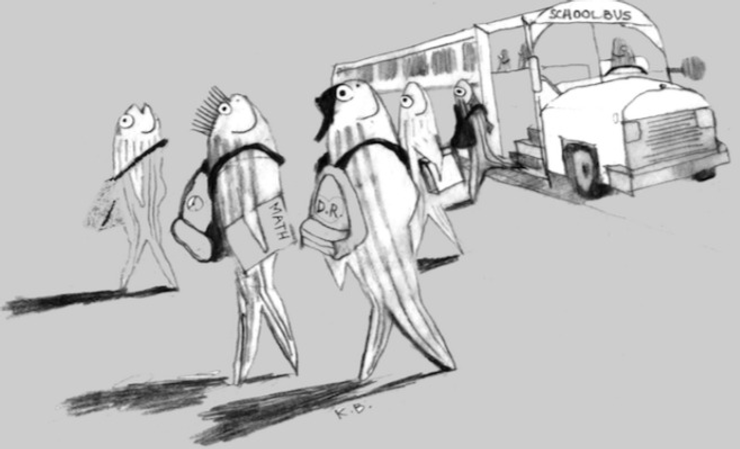Hello! My name is Phyllis Oduor, and I am a rising sophomore at Amherst College. I moved to the US from Kenya in August 2019 to start my undergraduate studies. I was born and raised in Kenya from my hometown Nakuru, well-known for its pink flamingos that inhabit Lake Nakuru and its Menengai crater. This summer, I will be based in West Richland, Washington where I’ll be doing my remote research.
Through the mentorship of Prof. Trapani and Stacey Beganny, Yaa Obeng ‘22, Esther Min ‘23 and I will be working together in the Trapani Lab. With our core values of honesty and kindness, we seek to understand how sensory information can be encoded into useful neuronal information using zebrafish (scientifically known as Dario rerio) as our model organism. Our findings will be important in the treatment of hearing and balance disorders.

To meet its goals, the lab has developed four main research projects:
- Sensory encoding in the lateral line.
- The role of the lateral line in startle response.
- Calcium responses in the lateral line and hind-brain.
- GABAergic control of motor behaviors (collaboration with Gerry Downes).
I hope to focus on The role of the lateral line in startle response by first exploring senior theses and other published articles.
In accordance with the social distancing measures, we will not be able to be in the lab this summer. In lieu of the traditional research procedures, we will spend time going through past written and published papers. This will enable us to better understand the lab’s projects and get background information on the lab which will gear us towards research when we get back to campus. I hope to develop teamwork and collaboration skills and better understand how to locate and navigate research papers.
We will occasionally have lab zoom meetings where we will learn specific information related to the zebrafish such as transgenic fish line, fish mating, and larval development. Soon, I will be able to distinguish between male and female fish and understand how they mate and develop. The SURF program also gives me an opportunity to join programming events where I learn more about research ethics and working with different programming tools such as Mathematica, Python, and ArcGIS. These skills will be useful in analyzing data since our lab uses python for data analysis.
Beyond research and school, I spend a lot of time listening to podcasts and TEDTalks. I particularly like Chimamanda Ngozi Adichie and Trevor Noah’s talks because they address societal issues such as feminism and race from an African perspective. I also do a lot of crocheting as well as dancing, a hobby I further developed during my time at Amherst. Additionally, I will be reading The Immortal Life of Henrietta Lacks this summer, a book that highlights some of the misconduct in research and is part of SURF discussion topics.
I decided to blog in order to share my research experiences which will hopefully provide a point of reference for students interested in Neuroscience research. I hope to encourage more women, especially those of color, to speak out and pursue their interests.
Thank you for being part of this adventure. Stay tuned to learn more about zebrafish and my remote research experience in the coming weeks. I hope you are having a happy summer!
You can reach me through my email (poduor23@amherst.edu)for any clarification or further information regarding my research.
PS: Check out the Trapani lab website for more information regarding the lab: http://www.trapanilab.com/index.html